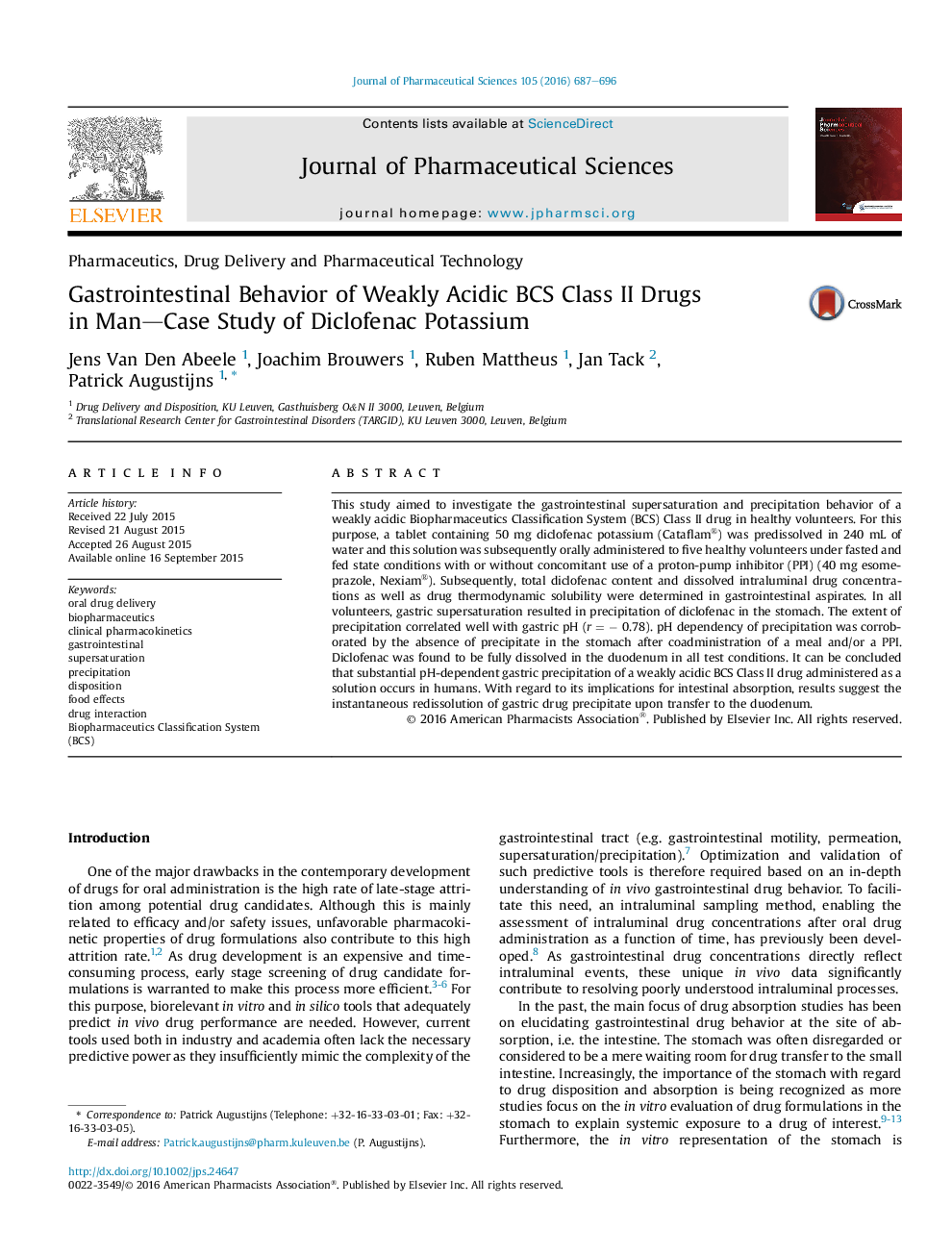| Article ID | Journal | Published Year | Pages | File Type |
|---|---|---|---|---|
| 2484269 | Journal of Pharmaceutical Sciences | 2016 | 10 Pages |
Abstract
This study aimed to investigate the gastrointestinal supersaturation and precipitation behavior of a weakly acidic Biopharmaceutics Classification System (BCS) Class II drug in healthy volunteers. For this purpose, a tablet containing 50 mg diclofenac potassium (Cataflam®) was predissolved in 240 mL of water and this solution was subsequently orally administered to five healthy volunteers under fasted and fed state conditions with or without concomitant use of a proton-pump inhibitor (PPI) (40 mg esomeprazole, Nexiam®). Subsequently, total diclofenac content and dissolved intraluminal drug concentrations as well as drug thermodynamic solubility were determined in gastrointestinal aspirates. In all volunteers, gastric supersaturation resulted in precipitation of diclofenac in the stomach. The extent of precipitation correlated well with gastric pH (r = â 0.78). pH dependency of precipitation was corroborated by the absence of precipitate in the stomach after coadministration of a meal and/or a PPI. Diclofenac was found to be fully dissolved in the duodenum in all test conditions. It can be concluded that substantial pH-dependent gastric precipitation of a weakly acidic BCS Class II drug administered as a solution occurs in humans. With regard to its implications for intestinal absorption, results suggest the instantaneous redissolution of gastric drug precipitate upon transfer to the duodenum.
Keywords
Related Topics
Health Sciences
Pharmacology, Toxicology and Pharmaceutical Science
Drug Discovery
Authors
Jens Van Den Abeele, Joachim Brouwers, Ruben Mattheus, Jan Tack, Patrick Augustijns,
